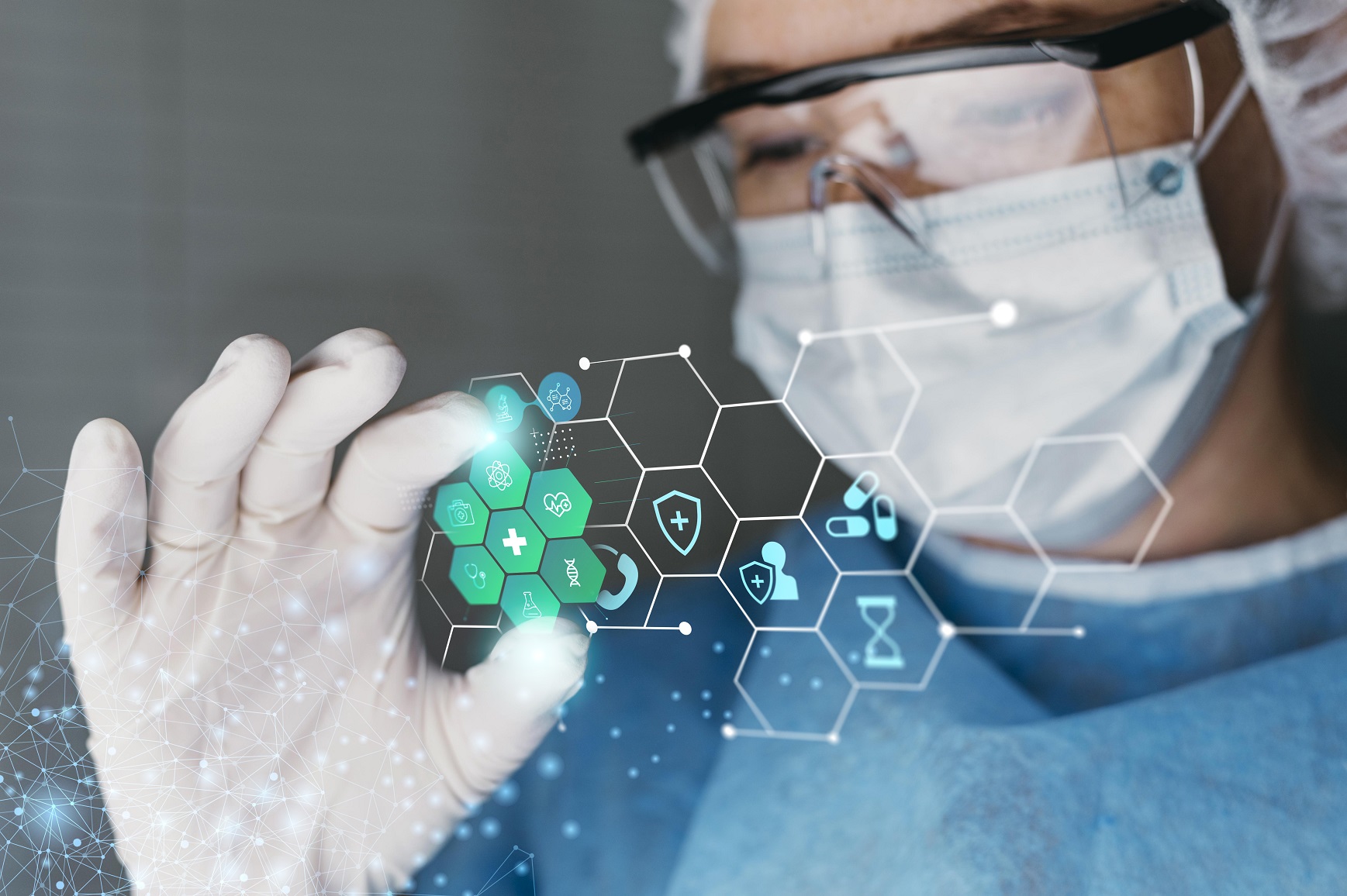IT is revolutionizing the field of medical technology. Medical robots are replacing humans in performing surgeries, artificial intelligence aids in diagnosis, and the Internet of Things allows for remote monitoring and analysis of patients’ conditions. These trends have opened up new prospects for the development and improvement of medical services.
Here are some current trends in the development of medical software:
- Artificial intelligence assists in cases of human resource shortages and, unlike humans, can work 24/7 and simultaneously process multiple situations to make informed conclusions for each one. The main areas of AI utilization in medicine include:
- Diagnosis. Machine learning algorithms observe the indicators of patients receiving assistance and inform the staff in case of risk factors, as well as identify complex conditions.
- Personalized medicine. AI models can learn and store physicians’ recommendations, people’s preferences, and provide real-time recommendations to patients based on their medical history and personal needs.
- Medical visualization. Medical software helps generate and analyze a large number of images and detect areas that require attention.
- Clinical trials. Conducting clinical trials requires a lot of time to assign result codes and update datasets. AI expedites this process by providing rapid medical code retrieval. This tool can speed up the process by more than 70%.
- Medicine development. AI can help reduce the costs of drug development in several ways:
- Creating drug designs.
- Generating combinations of medications.
- Processing large datasets encountered in the pharmaceutical industry.

A 3D model of teeth generated using AI based on an X-ray image.
- Medical robots improve the quality and speed of processes in:
- Performing surgeries, which currently involve minimally invasive procedures, but there have been cases where robots assisted with complex surgical interventions.
- Maintaining medical facilities, such as disinfection and the movement of medical materials and supplies.
- Supporting patient recovery.
- Assisting patients requiring special care.

The DaVinci surgical robot.
- Medical software for virtual reality is used in remote patient consultations, training, and procedures tailored to individual needs. Here are several ways virtual reality is changing medicine today:
- Psychiatric care.
- Pain management.
- Patient and healthcare professional education.
- Addiction treatment.
- Telemedicine.
- Medical Internet of Things (IoT) is one of the fastest-growing IoT segments. Developing medical software for smart devices provides new opportunities for monitoring and self-control of patients who are not physically present in healthcare facilities:
- Remote patient monitoring is the most common application of IoT devices in healthcare. Medical software and smart devices collect health status indicators, analyze and transmit the data to doctors, such as heart rate, blood pressure, temperature, and glucose levels.
- Information on depression symptoms is another type of data that is difficult to collect continuously but is necessary for patient condition analysis. IoT devices monitor heart rate, blood pressure, and eye movement of the patient.
- Monitoring symptoms of Parkinson’s disease. Physicians require information on the severity of disease manifestations throughout the day. Smart sensors facilitate this task by collecting data. At the same time, devices allow patients to spend more time at home instead of being hospitalized.
- Internet-connected inhalers can:
- Assist patients by tracking the frequency of asthma attacks.
- Gather information from the surrounding environment to understand the causes of attacks.
- Alert patients when they forget their inhalers at home.
- Monitoring the microclimate in medical facilities to create and maintain a favorable environment.
It is reasonable to ask whether medical software can replace doctors. Experts are confident that computer technologies are unable to replace qualified physicians entirely, but they can perform certain tasks effectively. The development and implementation of medical software are associated with a range of risks, such as data confidentiality and AI errors, which need to be addressed for the safe use of computer technologies in healthcare. For a description of the experience and competencies of Epol Soft in the field of medical software development, please take a look at this section.

